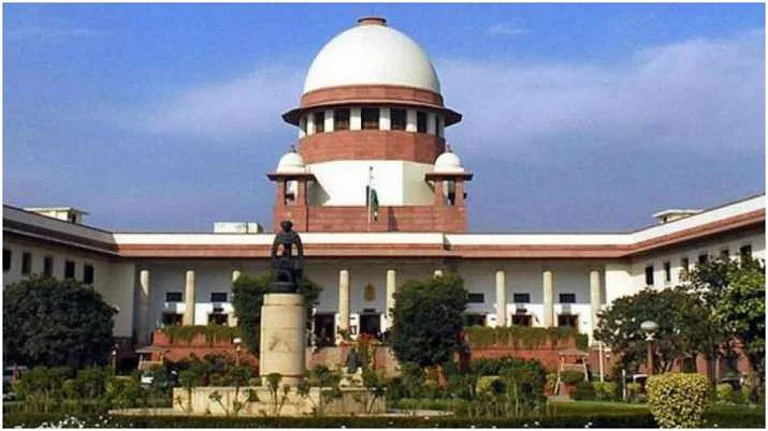The three new criminal laws passed in the Parliament in December last year—the Bharatiya Sakshya Sanhita, 2023; the Bharatiya Nagarik Suraksha Sanhita Bill, 2023; and the Bharatiya Nyaya Sanhita, 2023—All three criminal laws have been implemented from July 1. The first FIR under the new criminal laws has been booked in Gwalior.
These laws are replacing the Indian Penal Code (IPC), 1860; Code of Criminal Procedure (CrPC), 1973; and the Indian Evidence Act, 1872, which is why it is being called a complete restructuring of the criminal justice system in India.
A few months ago, talking about the efficacy of the new set of rules, Union Home Minister Amit Shah had in the Lok Sabha said that "the new criminal laws focus on justice rather than punishment".
The reworked drafts of the three bills had been introduced in the Parliament when two-thirds of the opposition was missing. They were passed by both the houses on December 21, 2023, and got the President’s assent on December 25, 2023.
As per The Indian Express, the government has also chosen to establish a team of 3,000 officers to train police officers, investigators, and forensic experts for the nationwide implementation of the new laws, following a "zone-wise" approach.
What changes will the new laws bring?
Definition of terrorism- The Bharatiya Nyaya (Second) Sanhita Bill (BNS) bill has amended the definition of terrorism to align completely with the existing definition in Section 15 of the Unlawful Activities (Prevention) Act (UAPA), 1967. According to provision 111 of the BNS Bill, an individual commits a terrorist act if they engage in any activity in India or abroad with the intent to threaten India's unity, integrity, and security, to intimidate the public, or to disrupt public order.
Experts have raised concerns about terrorism being included under BNS when it was already covered under UAPA. This new provision in BNS now gives the government dual authority to prosecute and imprison terrorism under two laws.
Cruelty to women - Section 86 of BNS bill defines cruelty to women as any deliberate behaviour likely to compel a woman to attempt suicide or cause serious harm or danger to her life, limb, or health, whether mental or physical. It is punishable by a maximum jail term of three years.
And section 73 of the bill states that individuals who print or publish any information regarding court proceedings in rape or sexual assault cases without permission will face a two-year jail term and a fine.
Sedition- Section 124A of the IPC criminalises incitement of hatred or contempt against the government, through spoken or written words, signs, or visible representations. This provision carries a punishment of up to three years' imprisonment, a fine, or life imprisonment. The new BNS bill does not use the term "sedition", but it introduces Section 152, which penalises actions that endanger the sovereignty, unity, and integrity of India.
"Whoever, purposely or knowingly, by words, either spoken or written, or by signs, or by visible representation, or by electronic communication or by use of financial mean, or otherwise, excites or attempts to excite, secession or armed rebellion or subversive activities, or encourages feelings of separatist activities or endangers sovereignty or unity and integrity of India; or indulges in or commits any such act shall be punished with imprisonment for life or with imprisonment which may extend to seven years and shall also be liable to fine," section 150 of the BNS Bill reads.
Mental illness to “unsoundness of mind” - The Parliamentary Standing Committee on Home Affairs, led by BJP MP Brij Lal, had suggested changing the term "mental illness" in the proposed laws to "unsound mind". They argued that "mental illness" was too broad and could include mood swings or voluntary intoxication, while "unsound mind" was more specific.
Power to commute sentence- According to National Law University Delhi’s Project 39A, the BNSS proposes changes to the government's power to commute sentences. Currently, besides the President or Governor's constitutional authority to reduce a sentence under Article 72 and Article 161 respectively, the Central and State governments can also reduce a sentence through statutory provisions.
“In the BNSS, Cl.475 titled ‘Power to commute sentence’ lays down the extent of this statutory power. Cl.475 corresponds to s.433 CrPC. However, new changes proposed in the BNSS lead to ambiguity in the manner in which different sentences are to be treated for commutation, while also reflecting a tendency towards enhanced punishments,” the Project 39A report states.
Community service as punishment - In a first, community service has been introduced as a punishment for "minor" offences, including criminal defamation. Other offences where community service has been added as punishment is for public servants engaging in unlawful trade, failure to appear in response to a proclamation notice, theft of properties valued at less than Rs 5,000 that has been compensated for by the convict, and trespassing while intoxicated.
Following the Parliamentary Standing Committee's suggestions, the revised bill now includes a definition of community service as “work which the Court may order a convict to perform as a form of punishment that benefits the community, for which he shall not be entitled to any remuneration”.
Death penalty for mob lynching- Mob lynching could attract the death penalty, depending on the severity of the crime.
Punishment for sexual intercourse on false promises- Section 69 of the BNS, 2023, introduces a new offence for engaging in sexual intercourse under false pretences such as promising marriage or under a false identity. However, experts believe the BNS has introduced Section 69 which tries to tackle the “love jihad” narrative by criminalising “deceitful” promise to marry. The phrase “sexual intercourse not amounting to the offence of rape” essentially criminalises even consensual sexual activity.



























